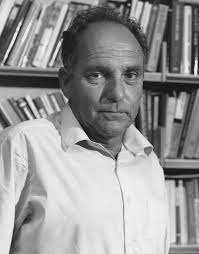Gellner, Ernest

Bio: (1925-1995) Czech-British philosopher, sociologist, and anthropologist. As a child, Ernest Gellner emigrated with his family from Czechoslovakia to Britain in 1939 due to the rise of Nazism. He also completed his studies in Britain and taught at the London School of Economics and Cambridge. Gellner believed that it was not possible to create a theory that would explain all historical changes. He believed that there are two types of historical periods, periods of relative stability, when functionalist explanations give better results, while, on the other hand, there are periods of great transformations of society for which specific theories for each individual type of transformation should be applied. The Neolithic and Industrial Revolutions are two types of great transformations. From the specific theories that explain the Neolithic and industrial revolutions, it is not possible to derive a general theory that would explain all kinds of social change.
Although it is not possible to create a general theory of social transformations, it is possible to determine a specific series of successive stages that societies go through. Examples are three levels of societies determined by the dominant type of economy: 1) hunter-gatherer societies, 2) agricultural societies, and 3) industrial societies. What is specific to these levels is that the hunter-gatherer society cannot spontaneously transform into an industrial society, it is necessary to go through the agricultural period. On the other hand, society at a higher stage rarely regresses to a lower level. The transformation from the agricultural to the industrial stage is very complicated, so that transformation, once it happens, is transmitted to all other societies through imitation. In Plough, Sword and the Book (1988), Gellner points out that to understand the functioning of society at every level, as well as the transformations between levels, it is important to study three social spheres: technology (plough), power and coercion (sword), and cognition (the world of ideas with which we understand and explain the world, which is represented by a book). Gellner pays the most attention to the cognitive aspects of every economic stage of society.
An important field of study, for Gellner, for which he is best known, are nations and nationalism. He views nations in the context of the enormous structural and cultural changes that have taken place with the development of industrial societies. Social status in industrial societies is associated, most of all, with professional position, unlike earlier societies in which kinship or origin was crucial. In the structural sense, industrial societies are organized according to a complicated division of labor, while cultural unity is achieved through a unique and complicated educational system that achieves standardization of education, as well as through literature that creates language standards for the whole country. This change represents the victory of "high culture" over "lower culture". Successful nationalist movements transform the existing culture and create a new one, that enables political unification. This means that nationalism preceded and was the cause of the creation of a nation-state and not the other way around. Those communities that exist within an industrial state, and remain left out of the early stages of industrial progress, and possess some cultural differences from the dominant nation, usually create their own national movements. These communities reject cultural unification and often demand political and cultural independence.
Fields of research
Agriculture Anthropology Art Civil Society Culture Ethnicity Evolution Freedom Ideology Industry Islam Kinship Language Movements, Social Politics Postmodernism Power, Political Religion StateTheoretical approaches
Sociocultural Evolutionism, Cultural EcologyMain works
Words and Things: A Critical Account of Linguistic Philosophy and a Study in Ideology (1959);
Thought and Change (1964);
The Saints of Atlas (1969);
Contemporary Thought and Politics (1974);
Patrons and Clients (1977);
Muslim Society (1981);
Nations and Nationalism (1983);
Plough, Sword and the Book: The Structure of Human History (1988);
Postmodernism, Reason and Religion (1992);
Conditions of Liberty: Civil Society and its Rivals (1994);
Nationalism (1997).

